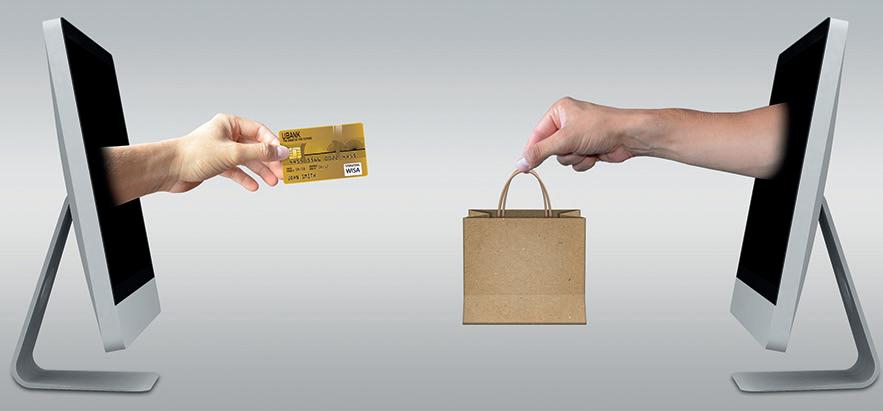
4 minute read
Teaching Children The Value Of Money
I remember as a child being given a twenty pence coin every Sunday when I went to visit my Grandparents in their bungalow.
My pocket money was always gratefully received. I would run to the little shop around the corner and carefully choose my penny sweets. Should I buy four large cola bottles for my money or twenty smaller sweets? I would take a while to make my decision and then always regretted it, vowing to make a better one the following week.
Advertisement
Nowadays, it seems that, in the age of cashfree transactions, children are finding it more challenging to understand the value of money.
If I have my two daughters with me, they don’t witness the exchange of money the majority of time, rather me pressing my card up against a machine, sometimes inputting my pin number. My children do not see me working as a teacher, tutor and writer to make ends meet.
They do not see the guilt I feel when I know I am in need of new clothes for me, but I am so used to spending my money on them. The value of money is lost on my children and it is entirely of my own doing in this digital world.
As a result of my mistakes, I am aiming to do the following so that they do understand the sacrifices we have to make and the fact that money does not grow on trees:
• Use cash for the majority of transactions Taking money out of the cash machine and using that rather than constantly tapping your card onto a machine not only helps you to see the amount you are spending, but also helps the children to see that too. When the cashier announces the total of shopping is £35.67, you
can tell your children that you have some £10 notes in your purse and ask how many you will need. The skills of rounding and counting in tens are important here.
Furthermore, avoiding making online purchases for things the children have asked for, while easier, does not actually teach them anything at all. They simply see that with a click of a button, a product can be ordered and will arrive the following day.
There is absolutely no view of the fact that the money had to be earned. Using physical shops rather than online ones ought to help.
• Put their pocket money into purses I am guilty of totting up how many weeks’ pocket money they are owed and just saying to them when we are shopping, “That could be what you spend your pocket money on as you have five weeks’ worth to spend.” In fact, this is a pretty silly way of doing it. Putting their £2 a week into a purse for them will show them exactly what they have and gives them a sense of responsibility too.
• Role play I love listening to the children playing together, creating imaginary scenes. I’m aiming to introduce the idea of money subtly into their role play games and hope that this will have an
impact on them. We have the till and a pot of real coins (the plastic ones just don’t feel or look the same), so redirecting them slightly could work wonders for their understanding of money.

• Be firmer All I want to do in life is provide for my children and make them happy. As a result, they can be spoilt at times and that is not what I really ought to be doing. I can spoil them with all the love and care in the world, but that does not mean I need to spend an excessive amount of money on them. My children do not understand how much money goes on the mortgage each month (I’m not sure they even understand that concept) or the amount we have to spend on oil, but I am not doing them any favours by being a pushover when it comes to money. Telling them that we cannot afford to buy certain things is an important life lesson. Asking them questions such as, “Would you prefer to have hot meals for the next week or a new doll?” should help them somewhat towards understanding our financial situation.
Parenting is probably the most difficult job you will ever have in life. There is no way to get every aspect right every single time, but I am still trying hard.
As a mum to two and step-mum to three, money is at the forefront of a lot of things, of course, so instilling a need to save up and make sensible decisions when it comes to our spending is vital.










